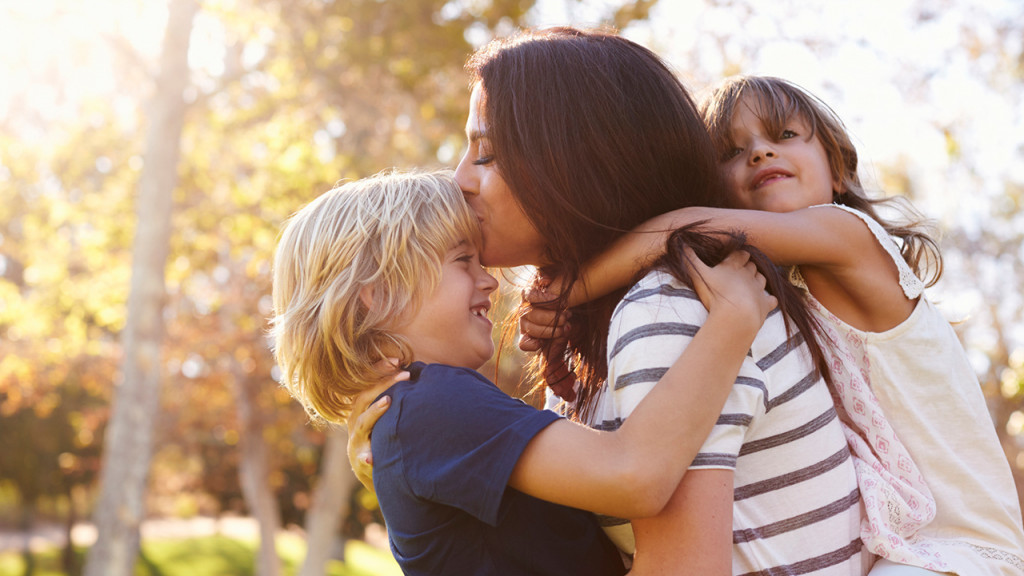Photo: iStockphoto
When I was five years old, I asked my mother which child was her favourite: me or my sister?
She pondered the question for a moment, then smiled and said, “You are, dear.” I must have looked stunned because she explained. “I love your sister too, of course, but I prefer the company of older children, so you’ll always be my favourite.”
I remember being utterly floored by her answer (it was so definitive—and so very much in my favour!) but also slightly unnerved (wasn’t it a bit unfair for my sister? And wasn’t her reasoning a bit impersonal?). In the end, I didn’t mention it to my sister Meghan out of pity. But many years later, when we both had small children of our own, I confessed to her what our mother had told me all those years ago.
Instead of being distraught, my sister threw her head back and roared with laughter. “She told me exactly the same thing!” she howled. “Except in my case it was because I was youngest!”

Time to fess up! Science says parents do have a favourite kidAs maternal Jedi mind tricks go, telling each one of your children that they alone are the favourite is a pretty bold one. And while you won’t find it as a recommended strategy in any parenting manuals, believing I was the apple of my mother’s eye undoubtedly increased my confidence as a child. Technically, my mother was being dishonest (it turns out that, like most parents, she rather boringly loved us both equally) but at least it was an equal opportunity delusion.
I’m convinced that believing I was her favourite biased me in favour of seeing myself as lucky and special—which in turn increased my overall sense of happiness and self-worth. My sister felt more or less the same way. And really, who did our private delusion of superiority hurt? I suppose there was the risk we’d try to use the (false) information against each other, but then the joke would only have been on us.
It seems I’m a bit of an anomaly though. According to a study from researchers from Brigham Young University’s School of Family Life, it’s the younger sibling that benefits the most from being the perceived favourite because they’re more focussed on social comparison than their elders. Older siblings, interestingly, are more likely to be fine with not believing they were the favoured one. The theory behind this differentiation makes perfect sense: Older children are less like to hear the words, “Why can’t you be more like X?” And because of this, the researchers reasoned, they are simply more confident when it comes to their place in the family dynamic.
Kids inherently understand that favouritism is a fact of life, and while they might not always be fine with it, you’d be a fool to try to persuade them it doesn’t exist at all. Many primary school teachers, in my experience, barely pretend to hide the fact that certain students charm them to bits while others are semi-permanently in the dog house. And children themselves make no effort to hide the fact that they prize the attention of one parent over the other. My step-son only wants academic validation from my husband, for example, and my five-year-old still prefers “Mummy stories” to any other kind at bedtime. (The baby, I fear, is currently more attached to his childminder more than any blood relation.)
My own feelings about parental favouritism have been muddied by the experience of being both a step-parent and a parent. I’d be a liar if I said I feel exactly the same way about my step-son as I do about my own biological children, and yet I am certain what I feel toward him is love.
For my own two children, I also feel love—of the overwhelming and responsibility-laden maternal sort—but given their four-year-age difference, I’d also being lying if I said I loved them both in the same manner. The baby I adore in an intensely physical way (most days I just want to eat him), whereas my older son I appreciate as a fully realised little individual with whom I can have a philosophical conversation about, say, who would win in a fight: a grizzly bear or a great white shark?
My feelings toward my kids fluctuate on a daily, even hourly, basis. In short, they are the antithesis of equitable or balanced. I am constantly feeling more favourable to one over the others. So I felt understandably caught out when my older son recently put it to me directly over lunch: “Mummy,” he said, “Who do you love more, me or Frankie?”
I wish I could tell you that I took a page from my own mother’s book and assured him that he alone was my extra-special favourite, but in the end I chickened out and went the conventional route and made a forgettable little speech about how I loved both them both equally.
He looked at me the way a skeptic looks at a snake oil salesman, which is to say with total disbelief. And then he leaned in close and said, “Don’t worry, I understand if you can’t tell me the truth. Parents are supposed to be fair, right?”
I promise you, he actually said this. And while I didn’t want to officially confirm or deny his arrogant belief that he—not the baby—was my favourite, I let the assumption ride. Instead of saying no, I winked. He winked back.
I hope he feels like the favourite—even if he isn’t.
Read more:
Comparing siblings can be more harmful than you thought
6 tips to help keep the peace between siblings


